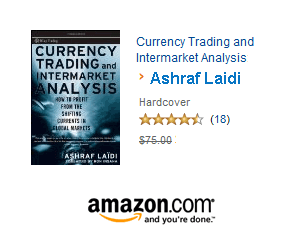Forum > View Topic (Media)
This thread was started in response to the Media:
Ashraf Laidi on AlArabiya about the Eurozone impact on MENA Region -- Dec 9, 2011
Ashraf Laidi compares the current turmoil with the 2008 financial crisis and how it impacts the Middle East and North Africa.
Unlike in the crisis of 2008 when a weak US dollar was tied to soaring energy prices, today's crisis emerges with relatively cheaper euro, stronger USD and fairly priced oil.
With oil prices 30% below those of 2008 and the US dollar 10% higher than in 2008, oil prices are neither too inflationary, nor too low for GCC exporters. And as long as prices are well above the break-even levels of $60 per barrel, this is a positive for the region.
More importantly, the GCC, which is generally tied to the US currency, does not face the inflation problems of 2008, which were largely caused by the falling USD.
The MAJOR RISK occurs if (when) an outright recession in the Eurozone (including Germany) impacts China and leads to deepening slowdown for GCC exports from China AND Europe. China is now the EU's biggest source of imports i.e. China exports have been largely dependent on Europe. With China already slowing (see last week's RRR cut and our expectation for a December rate cut in benchmark rates), we anticipate the impact on Chinese and EU demand for MidEast energy to be severe in the event that GCC is unable to slow a price slump via supply cuts.
GCC importers from Eurozone will benefit from further declines in EUR vs USD as it weighs on the value of their imports. This also keeps inflationary pressures muted, which is unlike in the case of 2008, when the falling USD and rising oil prices triggered the double blow of rising inflation and slowing growth.
For the impact on MENA & investment holdings, see http://ashraflaidi.com/
Report Reply




